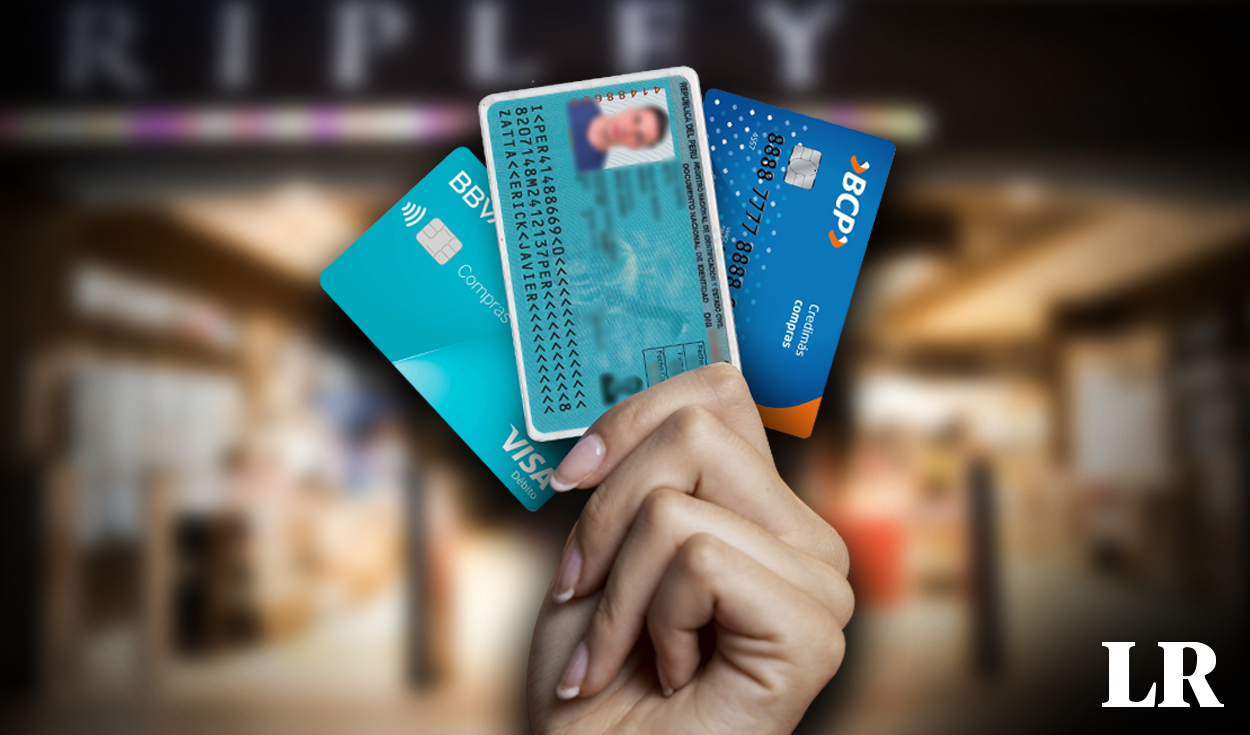
In today’s world, most people have a credit card to make your regular purchases or some that involve paying high amounts. Sometimes they ask for ID to make the payment, but other times they don’t. So, is it mandatory to present your identity document? The answer is not as simple as it seems.
To understand the implications and reasons why this document is usually required when carrying out credit card transactions, La República interviewed Jorge Carrillo Acosta, a finance expert at Pacífico Business School, who will provide some insights on this topic.
Do I have to show my ID when I buy with my credit card?
The specialist explained that, until now, the Superintendency of Banking, Insurance and AFP (SBS) has not given any rule that makes it mandatory to present ID when making credit card payments.
“There is no rule that requires you to present your DNI. In fact, when you make purchases online, they ask for your card information, but they do not usually ask for your DNI. For minor purchases, below S/50 or S /60 they don’t normally ask you for. It will depend on what the establishment or card operator determines, that is, what the POS (Niubis or Izipay) handle.“Carrillo Acosta explained.
From what amount do I have to show my ID?
Although there is no rule that requires showing your ID For credit card purchases, there is a general rule used by most establishments that requires an identification document when purchases exceed S/700.
“Normally, it is established as a general rule that (for) Purchases above S/700 require DNI, basically, to verify two things: the document aims to prove that that person is who they say they are and, above all, it serves to validate the signature. Even if it is contactless payment, they ask you to sign and they have to verify that the signature is similar,” explains the specialist.
Are more security mechanisms necessary when purchasing with a credit card?
Jorge Carrillo Acosta highlights that more security mechanisms are necessary to make credit card purchases, especially for virtual purchases, because scams and impersonations have grown. “There has to be some way to generate locks. The SBS is working on having a couple of additional verifications, a security key, the biometric issue, the fingerprint, the electronic signature or other mechanisms to avoid impersonations.”
Attention is being paid to online purchases, but the specialist considers that for physical means it is necessary to present the DNI for significant amounts, and not so much for small purchases.
What care should you take with your credit card?
The Superintendency of Banking, Insurance and AFP (S.B.S.) provides essential recommendations to take care of your credit card and avoid possible financial problems.
- Never share your credit card number, security code (CVV) or PIN with third parties. These details are confidential and should only be used by the cardholder.
- Keep your credit card in a safe place and avoid leaving it within reach of unauthorized people. Likewise, if your card is lost or stolen, immediately notify your financial institution to block it and prevent improper use.
- Regularly verify the movements and transactions made with your credit card. If you identify any unrecognized or suspicious charges, immediately report them to your bank to investigate and resolve the situation.
- Use your credit card responsibly: avoid exceeding your assigned credit limit and make timely payments to avoid interest and additional charges.
Source: Larepublica
Alia is a professional author and journalist, working at 247 news agency. She writes on various topics from economy news to general interest pieces, providing readers with relevant and informative content. With years of experience, she brings a unique perspective and in-depth analysis to her work.











